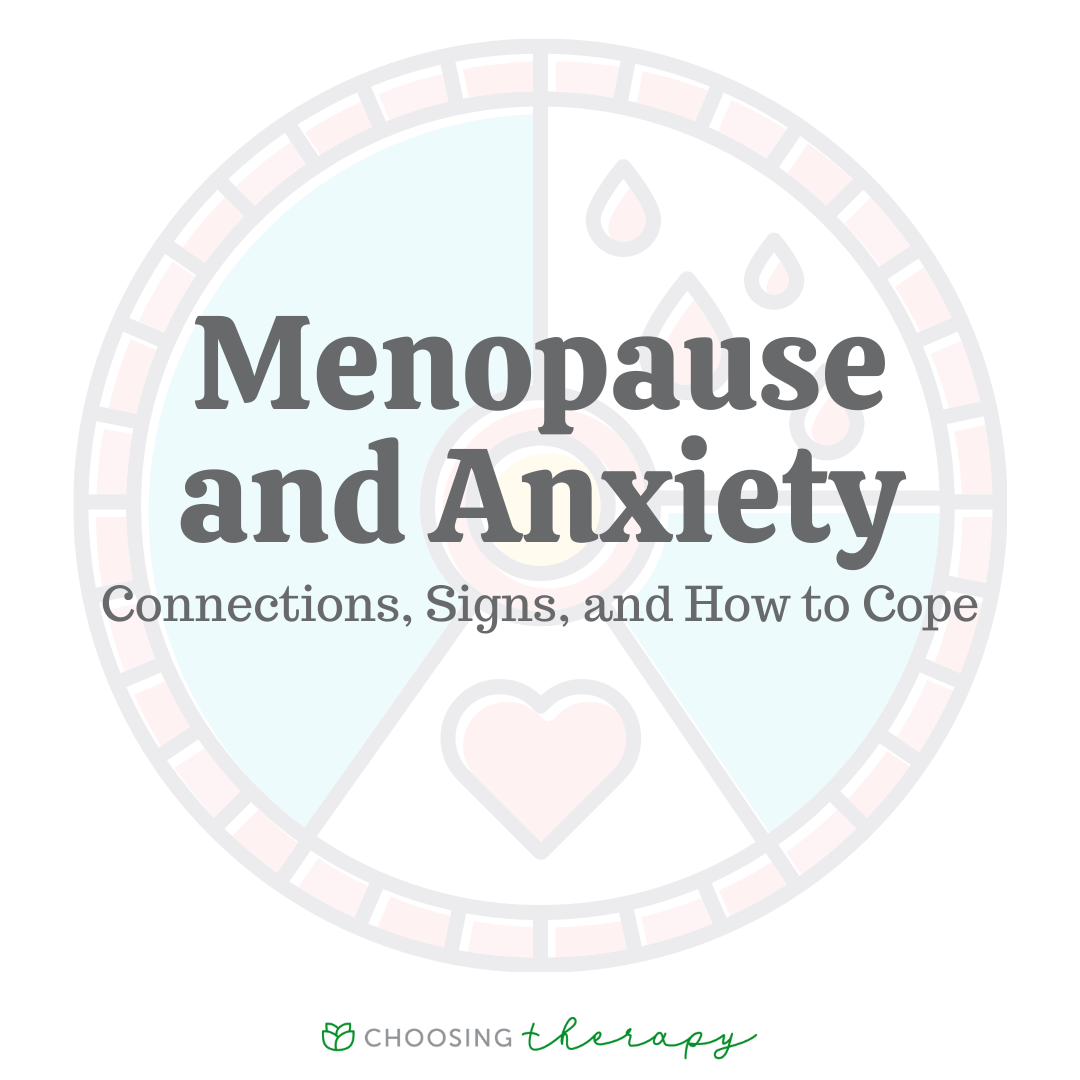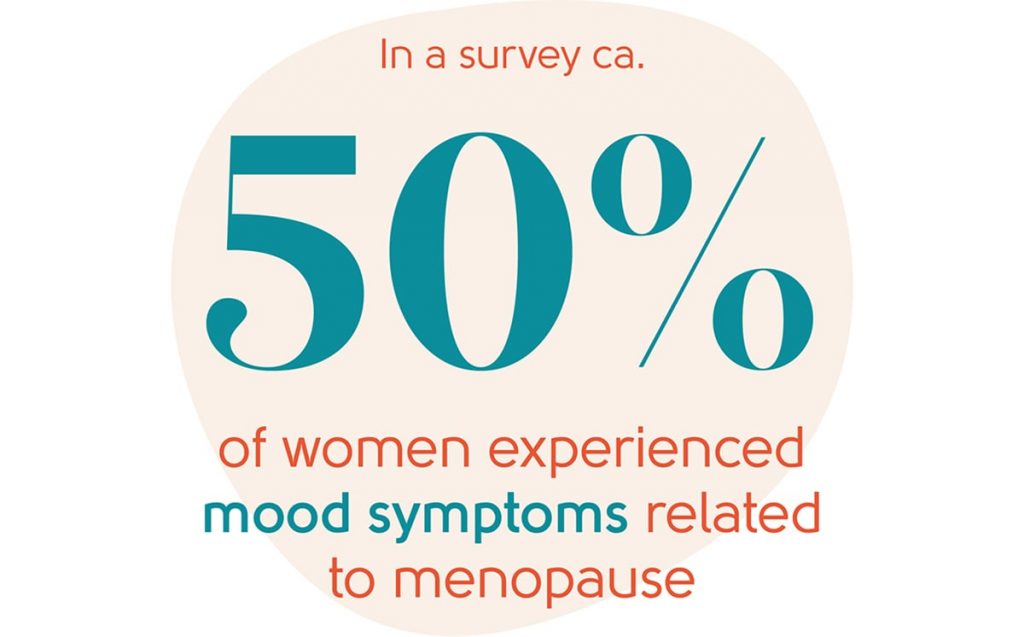Menopause and anxiety are closely intertwined, with hormonal changes and life transitions often triggering or exacerbating anxiety symptoms. Understanding the connection between these two experiences is crucial for managing well-being during this phase of life.
This guide explores the causes, symptoms, and effective strategies for managing anxiety during menopause, empowering women with the knowledge and tools they need to navigate this transition with confidence and resilience.
Menopause and Anxiety: An Overview
Menopause, the natural transition marking the end of a woman’s reproductive years, brings about significant physiological and hormonal changes. These changes can have a profound impact on a woman’s physical and emotional well-being, including an increased prevalence of anxiety symptoms.
Physiological and Hormonal Changes During Menopause
Menopause is characterized by a decline in the production of the hormones estrogen and progesterone. These hormones play a crucial role in regulating a woman’s menstrual cycle and reproductive system. As their levels decrease, women may experience a range of symptoms, including hot flashes, night sweats, sleep disturbances, and changes in mood.
Prevalence and Symptoms of Anxiety in Menopausal Women, Menopause and anxiety
Anxiety is a common symptom experienced by many menopausal women. Studies have shown that up to 60% of women report experiencing anxiety symptoms during this transition. The symptoms of anxiety can vary, but may include:
- Excessive worry or fear
- Irritability and mood swings
- Difficulty concentrating or making decisions
- Physical symptoms, such as muscle tension, headaches, or stomach upset
Impact of Anxiety on Overall Well-Being
Anxiety can have a significant impact on a woman’s overall well-being. It can interfere with daily activities, relationships, and quality of life. Anxiety can also increase the risk of developing other health problems, such as depression, heart disease, and stroke.
Causes of Anxiety in Menopause
Menopause is a time of significant hormonal changes that can lead to a variety of physical and emotional symptoms, including anxiety.
Fluctuations in estrogen and progesterone levels can disrupt the brain’s neurotransmitters, which are responsible for regulating mood and anxiety. Estrogen, in particular, has been shown to have a calming effect, while progesterone can have an anxiogenic effect.
Stress, Life Changes, and Social Factors
In addition to hormonal changes, menopause can also be a time of significant stress and life changes. These can include:
- Ending of menstruation and fertility
- Aging-related health concerns
- Changes in relationships with family and friends
- Retirement or career changes
- Financial concerns
These stressors can all contribute to anxiety, both directly and indirectly. For example, stress can lead to physical symptoms that can mimic anxiety, such as increased heart rate and sweating. Additionally, stress can make it more difficult to cope with the physical and emotional changes of menopause.
Sleep Disturbances and Physical Discomfort
Sleep disturbances are another common symptom of menopause. These can be caused by hormonal changes, as well as by stress and other factors. Sleep deprivation can lead to fatigue, irritability, and difficulty concentrating, all of which can contribute to anxiety.
Physical discomfort, such as hot flashes, night sweats, and vaginal dryness, can also contribute to anxiety. These symptoms can be disruptive and embarrassing, and they can make it difficult to get a good night’s sleep.
Managing Anxiety During Menopause

Anxiety is a common symptom of menopause, affecting up to 60% of women. It can manifest as feelings of nervousness, worry, or fear, and can significantly impact daily life. Managing anxiety during menopause is crucial for maintaining overall well-being.
Cognitive-Behavioral Therapy
Cognitive-behavioral therapy (CBT) is an evidence-based therapy that helps individuals identify and change negative thought patterns and behaviors that contribute to anxiety. In CBT for menopause-related anxiety, therapists may focus on challenging unrealistic beliefs about menopause, developing coping mechanisms for hot flashes and other physical symptoms, and practicing relaxation techniques.
Mindfulness
Mindfulness involves paying attention to the present moment without judgment. Mindfulness-based interventions have been shown to reduce anxiety in menopausal women. These interventions teach techniques such as body scan meditation, mindful breathing, and yoga, which promote relaxation and reduce stress.
Yoga
Yoga is a mind-body practice that combines physical postures, breathing exercises, and meditation. Yoga has been found to be effective in reducing anxiety and improving mood in menopausal women. Regular yoga practice can help regulate the nervous system, reduce stress hormones, and promote overall well-being.
Lifestyle Modifications
Lifestyle modifications can also play a significant role in managing anxiety during menopause. Regular exercise, such as brisk walking or swimming, can release endorphins that have mood-boosting effects. A healthy diet rich in fruits, vegetables, and whole grains can support overall health and well-being, reducing the risk of anxiety.
Medical Interventions for Anxiety in Menopause

Menopause can trigger anxiety due to hormonal fluctuations and other physical and emotional changes. Medical interventions can provide effective relief from anxiety during this transition.
Hormone Therapy
Hormone therapy (HT) involves administering estrogen and/or progestin to replenish declining hormone levels. HT can effectively reduce anxiety symptoms, particularly hot flashes and night sweats, which often contribute to anxiety. However, HT is not suitable for all women, especially those with a history of certain medical conditions, such as breast cancer or blood clots.
Antidepressants
Antidepressants, such as selective serotonin reuptake inhibitors (SSRIs) and serotonin-norepinephrine reuptake inhibitors (SNRIs), can help alleviate anxiety by increasing the levels of certain neurotransmitters in the brain. These medications are generally well-tolerated and can be effective in reducing anxiety symptoms during menopause.
However, they may have potential side effects, such as nausea, insomnia, and sexual dysfunction.
Complementary and Alternative Therapies
Complementary and alternative therapies, such as yoga, meditation, and acupuncture, can provide additional support in managing anxiety during menopause. These therapies aim to reduce stress, improve sleep, and promote overall well-being. While they may not be as effective as medical interventions, they can complement other treatments and provide additional relief from anxiety symptoms.
Coping with Anxiety in Menopause

Managing anxiety during menopause involves adopting effective strategies that address both the physical and emotional aspects of this transition. This includes implementing self-care practices, seeking social support, and considering professional help when necessary.
Self-Care Strategies
Prioritizing self-care is crucial for reducing anxiety during menopause. Engaging in regular exercise, maintaining a healthy diet, and getting adequate sleep can significantly improve overall well-being and reduce stress levels.
Social Support
Building a strong support system is essential for coping with anxiety. Talking to friends, family members, or joining support groups can provide a sense of belonging and validation, reducing feelings of isolation and anxiety.
Professional Help
If self-care and social support measures do not adequately manage anxiety, seeking professional help is advisable. Therapists and counselors can provide evidence-based therapies, such as cognitive-behavioral therapy (CBT) or mindfulness-based stress reduction (MBSR), which have proven effective in reducing anxiety symptoms.
Key Questions Answered: Menopause And Anxiety
What are the common symptoms of anxiety during menopause?
Anxiety during menopause can manifest in various ways, including excessive worry, irritability, difficulty concentrating, sleep disturbances, and physical symptoms like heart palpitations and shortness of breath.
How can lifestyle modifications help manage anxiety during menopause?
Regular exercise, a balanced diet, and sufficient sleep can significantly reduce anxiety symptoms. Exercise releases endorphins that have mood-boosting effects, while a healthy diet supports overall well-being and reduces inflammation.
When is it necessary to seek professional help for anxiety during menopause?
If anxiety symptoms are severe, persistent, or interfere with daily life, it’s important to seek professional help. A therapist can provide evidence-based treatments like cognitive-behavioral therapy and prescribe medications if necessary.